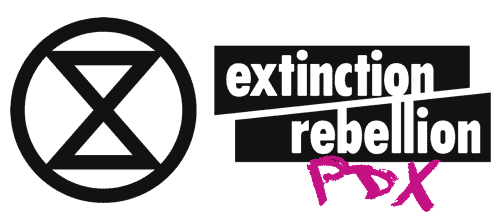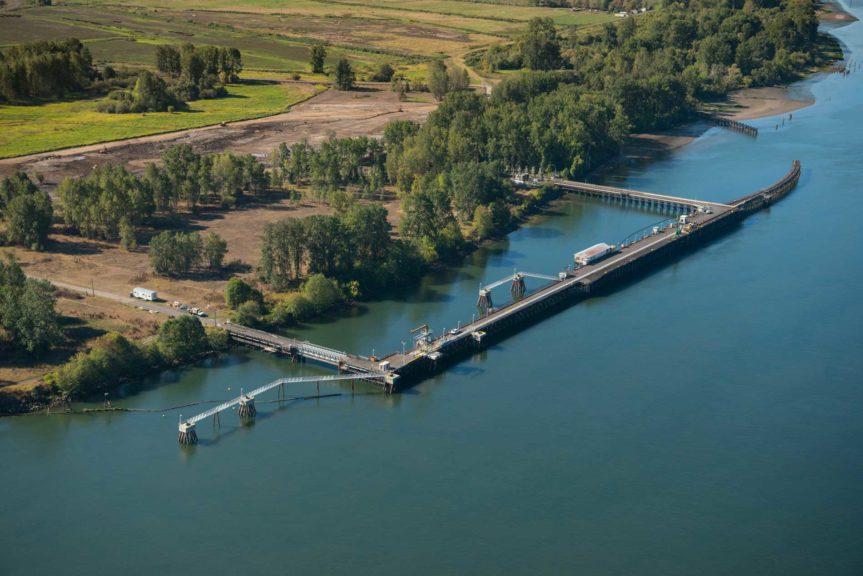Houston-based NEXT Renewables LLC proposes to build and operate a renewable diesel refinery at Port Westward, on the Oregon side in the Columbia River Estuary. At 1.15 million tons of carbon pollution each year, the proposed renewable diesel refinery would be one of Oregon’s largest emitters of greenhouse gas pollution, mostly from fracked gas used to make hydrogen. DEQ will hold a virtual public hearing on April 27, 2022 at 6pm. Sign up to give 2-3 minutes of testimony on zoom. Written comments are due by 5pm on May 26 and can be sent to NWRAQPermits@deq.state.or.us.
The proposed refinery, including a 400-car railyard, would convert seed oil, waste oil, or waste animal fats and tallows into renewable diesel. It faces fierce opposition because of its potential to harm sensitive resources at Port Westward and expand rail traffic through Columbia County.
The DEQ draft does not adequately address the impact of mile-long, diesel-powered trains. DEQ’s draft permit shows that the project will emit significant hazardous air pollution, particulate matter, and smog-forming volatile organic compounds (VOCs). Pollution from the refinery would settle on local residences, a nearby Buddhist monastery, and high-value crops. Local mint farmers have raised concerns about particulate matter. DEQ’s permit fails to establish adequate limits or monitoring for particulate matter, or to provide for a resolution process if the pollution has a negative impact on neighbors’ health or crops. NEXT should be evaluated as a major source of emissions under Title V of the Clean Air Act because VOC and carbon monoxide emissions approach the 100 ton/year limit. The draft fails to show how DEQ will enforce limits nor effective control measures for startup and shutdown events, nor for the marine loading and unloading emissions.
NEXT’s marine feedstock and product shipments would occur in addition to the shipments by Global Partners, permitted to move up to 120,000 barrels per day of renewable diesel, crude oil, or ethanol. If the proposed NEXT refinery and its neighbors (Global Partners’ oil/ethanol/diesel terminal and PGE’s nearby power plant) all operate full-throttle, the local airshed will become far more polluted than NEXT’s analysis would suggest, especially given the nearby pulp and paper mill and Longview, WA industrial areas. Pollution from the project will also impact residents of Cowlitz County.
DEQ does not adequately address the potential for the proposed refinery to emit noxious odors. The refinery proposes to convert animal fats, waste oil, or purpose-grown feedstocks into renewable diesel, a process with clear potential to impact people living nearby. DEQ’s complaint-driven process for addressing odors provides little protection for the community, as DEQ offers no plan or analysis for how DEQ would respond, leaving complaint resolution to the polluter.
DEQ cannot afford to take NEXT at its word when it comes to pollution. Key officials in NEXT were involved in a failed biofuels project in Odessa, WA called Transmessis Columbia Plateau, which went belly-up after a crash in biofuels prices, leaving behind a toxic mess that required cleanup under the Superfund law. The troubling track record of Lou Soumas and Chris Efird, both involved with NEXT and the Odessa mess, raised red flags for the Port of Longview. A proposal by the same backers to build a refinery there handling crude oil, biofuels, and propane was rejected.
(Adapted from Columbia Riverkeeper.)

